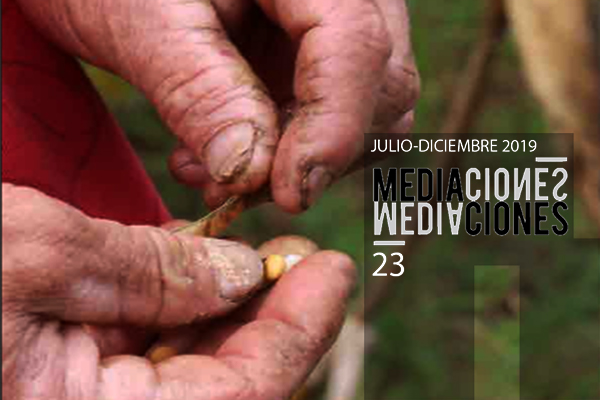¿Estamos obligados a publicar? O cómo traicionar a la Universidad cuando no se investiga y no se publica
Contenido principal del artículo
Resumen
Uno de los fundamentos de toda idea periodística aconseja no titular con una interrogante, cosa que he hecho en esta ocasión. El lector espera, con todo derecho y razón, que le aclaremos las situaciones y no que le ofrezcamos asuntos sin respuesta. Así y todo, de esa manera lo he hecho en esta ocasión. ¿Se trata de un lapsus, un error?
estamos obligados a publicar, a dejar de ser repetitivos en nuestra docencia, a presentar alguna vez la originalidad de cualquier trabajo que merezca el título de investigativo, de ser una investigación académica, de ser el resultado de una pesquisa que trata de responder a las hipótesis de partida, que sigue el curso de la metodología aplicada.
Detalles del artículo
Sección

Esta obra está bajo una licencia internacional Creative Commons Atribución 4.0.
![]()
Revista MEDIACIONES © 2024 por Corporación Universitaria Minuto de Dios - UNIMINUTO está licenciada bajo Creative Commons BY.
Cómo citar
Referencias
De Pablos Coello, J. M., Mateos Martín, C., y Túñez López, M. (2013). Google cambia el paradigma de la métrica científica. Historia y Comunicación Social, 18(Esp. Dic.), 225-235. doi: https://
doi.org/10.5209/rev_HICS.2013.v18.44327
De Pablos Coello, J. M. (19 de marzo de 2013). Fundamentos de una revista científica, ¿qué es? y ¿para qué? Portal Comunicación. [En línea]. Recuperado de http://www.portalcomunicacion.com/lecciones_det.asp?id=79
Eco, U. (2009): Cómo se hace una tesis. Técnicas y procedimientos de estudio, investigación y escritura. (6ª ed.). Barcelona: Gedisa.
García Márquez, G. (2012): Yo no vengo a decir un discurso. Barcelona: Debolsillo.





